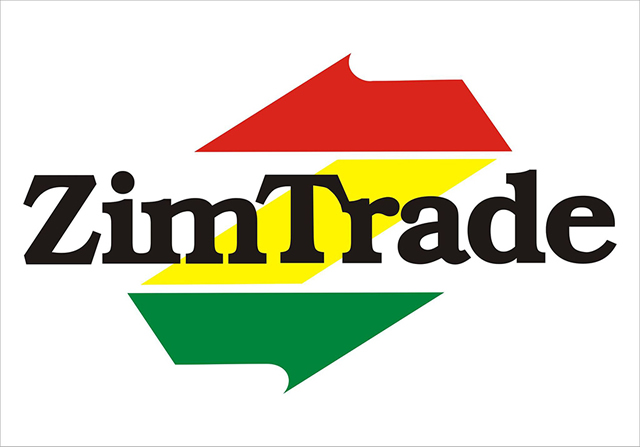Equip ZimTrade to deliver export growth

Dr Gift Mugano —
I have heard discussions in the policy making corridors of Zimbabwe on the need to establish an export promotion council. However ZimTrade is our export promotion agent. There is no need to set up a new organisation to do the same. I guess that there is realisation that ZimTrade is not delivering with respect to opening new markets for exports.
Or, one would like to say that our exports have remained stagnant and is seeing a fundamental void which needs to be filled by the export promotion council. This week’s edition seeks to support the same thrust of energising export promotion by equipping ZimTrade to deliver and showcasing what ZimTrade can do in with international best practices on export promotion.
Provision of resources
We must expand ZimTrade offices both locally and internationally. In Chile, the ProChile, which is an equivalent of ZimTrade has 14 offices in Chile and 59 trade offices or trade representative offices in 38 countries. Some are located with diplomatic missions and others are freestanding commercial offices. Chile’s largest presence is in Latin America (16 countries), Europe (13), Asia (8) and the Australasian region (5).
It has three offices in the United States and two in Canada. ProChile also has a small presence in the Middle East and Africa. ProChile’s budget is about $30 million annually, of which $11 million is allocated to ProChile’s domestic operations. The cost of foreign offices, including salaries is covered separately. ProChile has 244 employees of which 141 are assigned to foreign offices.
This is a middle range example. However, when we come back home, the geographical coverage of ZimTrade locally is limited to Harare and Bulawayo and almost non-existence in foreign countries. Again, staff compliment is just a paltry. It takes money to make money. Let us resources ZimTrade to deliver.
In addition, the Chile Government provides research resources for ProChile, which are used to access number of international data sources for research, including the Economist Intelligence Unit. The online databases it uses vary from country to country, since market research is carried out largely by foreign offices. In addition, the agency contracts some detailed market research to external consultants in target markets.
ProChile’s country managers return to Chile each year for fact-finding, networking, and training. Each country or regional manager (in countries with more than one office) is expected to share information on the successes and failure of various promotion initiatives with managers throughout the organisation.
Country managers do this more frequently on a regional basis in areas where they face similar challenges, such as in North America and in the EU.
This is the kind of work ZimTrade must do.
Setting objectives and priorities
ProChile established priorities through a combination of market analysis and collaboration with industry associations. The governing policy is to give priority to markets with the most potential for export growth, especially those where free trade agreements are in effect. The most important markets are North America and the EU. Priority sectors are those with the best match of capabilities with the demands of those markets.
We have regional trade agreements with a mother of all agreements being the Common Market for Eastern and Southern Africa (Comesa), Southern Africa Development Community (Sadc) and Eastern African Community (EAC) tripartite with a population of 600 million and a combined gross domestic product of $1 trillion. This is in addition to our free trade agreement with European Countries under the Economic Partnership Agreements (EPAs).
ZimTrade need to help our companies to tap into this large market. One of our key challenges as a country is constrained demand. If all things are equal why should we worry with reduced aggregate demand of 13 million people when we have a market access of 600 million? One may want to say we have no export capacity due to low production levels. This is one hand true.
However, on another hand, conventional wisdom tells that if one have a market production is not a problem. At a household level if am guaranteed market for Zvihuta by Pick n Pay mobilisation of resources for production and meeting the order is not a problem. Isn’t?
In order to make priorities setting practical and easy to implement, ZimTrade need to have thorough consultations with industry associations. These consultations build understanding of each sector’s business needs and priorities, thereby focusing export promotion and service delivery.
International best practice has shown that trade agency collaborates with these industry associations has resulted in private sector in co-funding some of the trade promotion activities.
In the same spirit of reinvigorating exports, assuming that ZimTrade has been availed with enough resources, the export promotion delivery vehicles it must implement, in line with best practice, should be centred on raising awareness, building export readiness, selecting target markets, identifying sales opportunities and closing export deals.
Raising awareness
In addition to a website targeting international audiences, ZimTrade should have an internal site for exporters. This site should provide an integrated interface for services to exporters, along with a calendar of events, news, and a variety of studies and reports.
The site should include a guide to exporting, which describes the exporting process in three stages: the decision to export, the exporting process, and incentives for exporters. ZimTrade should also operates a telephone export service that provides general information on exported products and services and their destinations.
International best practice has shown that successful trade promotion efforts are recognised on an ad hoc basis by posting success stories on the internal website, and by placing stories in magazines published by industry associations. Sometimes this draws the attention of mainstream media. Working in collaboration with export promotion agency, some industry associations also give out export awards at their annual conventions, but there are high-profile national export awards.
Building export-readiness
To improve the export skills of smaller existing exporters, and to encourage new SME exporters, ProChile developed the Internalisation Plan in 2001. One component, Interpac, is designed for SMEs in the agricultural sector; the other, Interpyme, is designed for SMEs in industrial sectors. A component for the service sector was also developed.
These programs provide Chilean companies with systematic training in exporting issues faced by SMEs. They include training modules on production capabilities, market research, logistics, marketing plans, banking, international law, searching for partners, and the export process.
Interpyme and Interpac are operated by a team of private sector consultants hired by ProChile and participants are provided with individualized one-on-one counseling as part of the programme. Participants complete one module at a time, and when they have completed the full programme, they become eligible for ProChile co-financing programs, provided that they have promising export plans.
These programmes take about one year to complete. ProChile covers up to 90 percent of the cost, provided that participants have an exportable product for which there is international demand and that they use labour-intensive production methods.
ProChile operates another exporter training program in association with the Santiago Chamber of Commerce. It is oriented toward developing market research skills and accessing global business opportunities. The agency also sponsors some courses delivered by other training institutes including the Santiago Chamber of Commerce, Asexma-Chile, and Universidad Miguel de Cervantes.
For us, the starting point is to have an export promotion strategy which ZimTrade leads in implementing then we move to the development of a comprehensive strategy for export development and promotion.
Selecting target markets
ProChile creates country guide handbooks covering most of Chile’s major trade partners. These handbooks provide economic and social data and profiles of consumer spending, tastes, purchase patterns, and other relevant information.
Some foreign offices publish handbooks on local market contacts that provide more detail about the country’s import requirements. Both types of handbook are sold at cost.
ProChile’s trade offices abroad also carry out studies of specific sectors in a target country or on broad product or service categories of interest to Chilean industries. Some of these reports are available at ProChile’s website.
Others are available without charge by requesting them directly from the trade office abroad. These reports are available only to registered Chilean exporters.
Industry associations, government agencies, and some individual exporters can purchase market intelligence and market research reports published by private consultants, such as the Economist Intelligence Unit and other commercial market research firms.
ProChile uses its buying power to negotiate special prices for these publications, which are re-sold at cost to the requesting association, agency, or exporter for their exclusive use.
Business associations and exporters can also make formal requests for in-depth studies on specific topics. If ProChile does not have such a report and is not prepared to create one, it will provide advice about cost-effective private sources of this information.
Identifying sales opportunities
ProChile encourages Chilean exporters, associations of exporters, and potential exporters to submit promising export plans to an annual competition for export grants.
The plan must outline how the venture will accomplish market exploration, penetration, and consolidation for Chilean goods or services in foreign markets.
It must include a timetable of activities, details on key players, and clear explanations of how, where, and why financial, human, and strategic resources will be applied. Proposals are accepted in August and September (ProChile sets its annual export promotion budget at the end of October).
Applications are selected based on their export potential.
The company must have a competitive product with clear market demand abroad. Officials for ProChile’s foreign offices are consulted as part of the selection process. Successful applicants receive co-financing of up to 50 percent of the total amount to be spent on the venture, either abroad or locally.
The funds may be used only for promotional or marketing activities defined in the export plan.
Closing export deals
Many ProChile trade offices abroad distribute promotional materials of Chilean exporters when they meet with prospective buyers. They will also request samples, catalogues, and brochures from the Chilean company when they recognise an opportunity. ProChile staff located in diplomatic missions are restricted in their ability to act as representatives of Chilean companies.
ProChile will recommend private or public organisations to assist with certification under foreign product standards, but does not provide direct assistance.
ProChile office managers abroad have diplomatic status and ready access to assistance if regulations are believed to contravene bilateral or multilateral trade agreements.
The activities which falls under export delivery vehicles exactly what ZimTrade should do. Best on my knowledge, the existing staff at ZimTrade is undoubtedly competent.
The real challenge is a resource issue. Out of a number of export promotion strategies I have read through, the Chilean example is a middle range example. It is not out of the world. We can do it! Let us equip ZimTrade so that we can take this country to the level we want.
Together we make Zimbabwe great.
Dr Mugano is an Economic Advisor, Author and Expert in Trade and Competitiveness. He is a Research Associate of Nelson Mandela Metropolitan University. Feedback: +263 772 541 209 or [email protected]









Comments